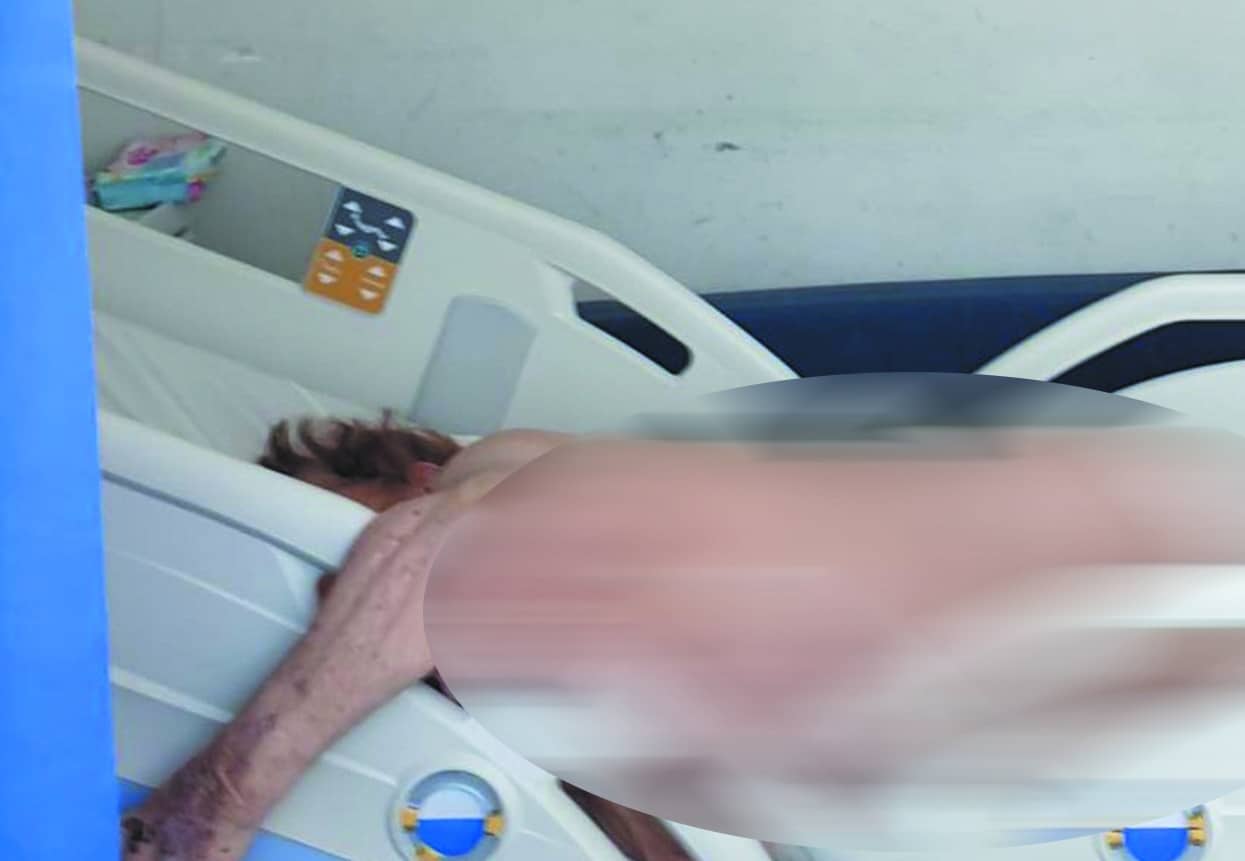Public outcry over a patient who was allegedly left naked on a bed in Limassol general hospital continued on Tuesday, with various officials taking a stand.
Speaking on CyBC, Head of the state doctors’ federation (Pasyki), Sotiris Koumas, was tight-lipped restating Okypy’s position that there was more to the published photo than meets the eye, and that results of the investigation must be scrutinised before conclusions of any sort can be drawn.
President of the third age observatory Dinos Antoniou, however, speaking on the same programme, was less circumspect saying that incidents such as this cannot be swept under the rug, and adding that in January alone 44 complaints had been received by his organisation.
Antoniou pointed to the fact that the picture had been uploaded to social media by eminent gerontologist Marios Kyriazis and the negligence it appears to depict could not therefore be dismissed offhand.
Listeners reported similar incidents, one of a patient being sent home naked by ambulance from Paphos hospital after treatment for Covid, another claiming they had found their mother uncovered and secured to the bed at the same hospital.
In January outrage erupted when an official complaint that elderly patients were being kept tied to their beds became known.
For his part, Charalambos Charilaou spokesman for Okypy, maintained that the state health services have ‘zero-tolerance’ for anything that violates patient rights and dignity and offered assurances that transparency in proceedings would be upheld, and punishment meted out as necessary.
Notwithstanding, Charilaou chastened Kyriazis for publicising a naked photo of a patient on social media, saying it was not the right way to proceed, and claiming the publication was done without the consent of the patient or the patient’s family, and was thus a serious breach of privacy rights.
The gerontologist had not been present at the time, Charilaou stated and had received the photo second-hand.
“In order for the investigation of a complaint to proceed properly, specific statements must be made about time, day, what was done and who did it,” Charilaou said.
The Okypy spokesman added that at any given time a ward may be full of people, “thirty nurses, ten doctors, physiotherapists, cleaners” and it is difficult to assign responsibility for vague and sensational claims without careful substantiation.
Moreover, it is possible the snapshot was taken while the patient was momentarily uncovered, while awaiting an examination, bathing, or a hospital gown, so no one should jump to conclusions, Charilaou said.
It is possible to trace who took the photo, he added, declining to say more, other than that Okypy is speaking with its team of legal experts about the incident.
Both the third age observatory and the Okypy spokesman highlighted that there is an urgently need to properly train staff in geriatric patient care so that outdated models of care and hospital “culture” can be changed and for such incidents to be avoided going forward.







Click here to change your cookie preferences